
To celebrate this year's International Women's Day on March 8, 2024, we revisit some of the articles, podcasts and videos we have produced with women mathematicians over the last year. We've really enjoyed learning about these women's fascinating work and we hope that you will too!
A brand new suite of resources!
Contagious maths — Understanding how infectious diseases spread involves a lot of maths — to be precise it involves a lot of mathematical modelling. We found this out through our long-standing and fascinating collaboration with the disease modeller Julia Gog of the University of Cambridge.
Contagious maths is based on a series of very short video clips, in which Julia herself takes you from the very basic ideas of disease modelling right up to what she and her colleagues are working on today. You can also have a go yourself with the lovely interactivities developed by our sister site NRICH, which allow you to explore the ways in which a disease might spread and how these insights feed into mathematical models.
The project also features researchers Petra Klepac and Maria Alegria Gutierrez talking about their work in disease modelling.
To find out how Contagious maths came about and what motivated it, see this article.
Articles
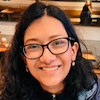
The gambler's ruin — In this article we find out how to nail infinity with a nifty trick (and almost certainly lose in the process). It was written by Maryam Naheem, at the time a final year student at the Tiffin Girls’ School in Kingston Upon Thames.
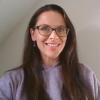
AI be the judge — There have been suggestions that human judges should be aided, even replaced, by artificial intelligence. The hope is that AI would produce fairer sentences as it wouldn't be subject to bias as humans are. In this article law expert Elizabeth Tiarks of Aberdeen University helps us untangle this thorny issue.
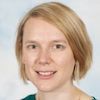

Can data science help rebuild our trauma networks? — Ambulance and A&E waiting times have been much in the news lately. In this article we find out how mathematics can support us in rebuilding our trauma networks. It features Sarah Bohndiek and Carola Bibiane Schönlieb, both of the Cambridge Mathematics of Information Healthcare Hub.
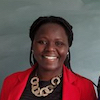
New understanding of a neglected disease — Fatumah Atuhaire has used the power of mathematics to help understand a neglected tropical skin disease. We learnt about her work at last year's Black Heroes of Mathematics conference, which also featured Nicole Joseph, Peabody College, who studies the experience of black girls in maths education in the US.


A richer view of the inside — Our ability to see inside a person's body, without surgery, has revolutionised modern medicine and saved countless lives. And each life saved is thanks to the mathematics of tomography. Last year the Isaac Newton Institute for Mathematical Sciences in Cambridge ran a research programme on how this technique could be improved even further. We find out more with Silvia Gazzola from the University of Bath and Romina Gaburro, from the University of Limerick.
Episodes of the Maths on the move podcast
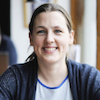
Sarah Hart: Once upon a prime — People don't usually think about maths and literature as related subjects, but it turns out that there are plenty of connections between the two. In this podcast we talk to mathematician and author Sarah Hart about her brilliant book Once upon a time: The wondrous connections between mathematics and literature.
Valerie Pinfield: Chocolate and mayonnaise — Chocolate and mayonnaise are two of our all time favourite foods, so we were very happy to get the chance to talk to Valerie Pinfield of Loughborough University, who has used maths to work on both chocolate and mayonnaise.
Timandra Harkness: How to make maths funny — Timandra Harkness, presenter, writer, Fellow of the Royal Statistical Society and comedian, told our friends Dan Aspel and Maha Kaouri her favourite maths joke in this episode of the Living Proof podcast from the Isaac Newton Institute for Mathematical Sciences.
Hannah Thomas: Making data accessible — Having empathy with your audience is the first step towards making your content accessible. Hannah Thomas of the Government Analysis Function spoke to our friends Dan Aspel and Maha Kaouri for this episode of the Living Proof podcast from the Isaac Newton Institute for Mathematical Sciences. Hannah told them about her work helping to make government data more accessible, the common pitfalls of data accessibility and tips and tricks that can help. They also find out why more people used to get married at the end of the tax year...
Some of this content was produced as part of our collaboration with the Isaac Newton Institute for Mathematical Sciences (INI) – you can find all the content from our collaboration here. The INI is an international research centre and our neighbour here on the University of Cambridge's maths campus. It attracts leading mathematical scientists from all over the world, and is open to all. Visit www.newton.ac.uk to find out more.
